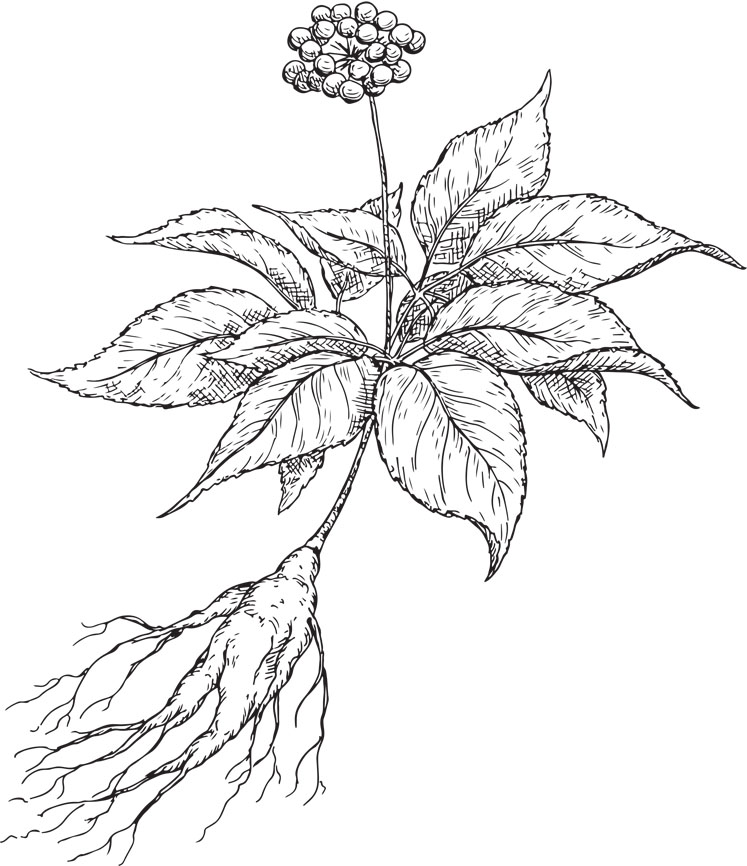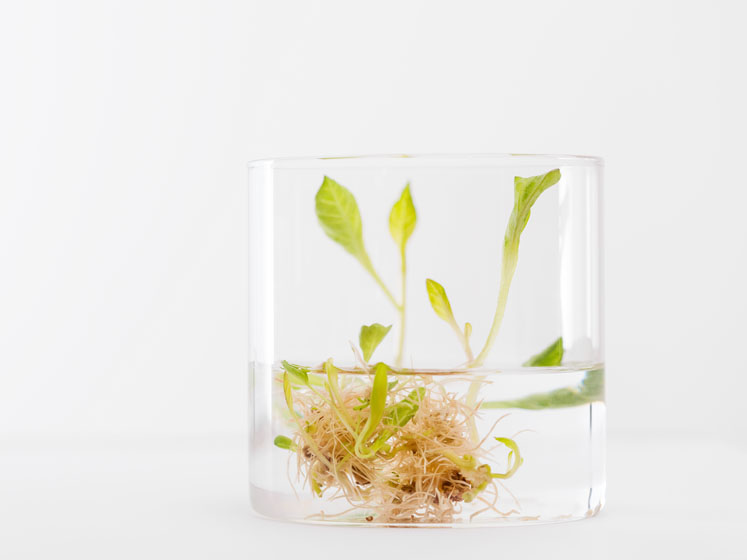Although our ancestors were able to enjoy Nature’s botanical gifts and simply collect them from the wild, surging herbal demand in recent decades has seen wild harvesting replaced by large-scale, yield-driven agriculture. Yields may have increased but the associated cost — to the environment, to crop quality and to nutritional profiles — has been high.
Not only that, solvent-intense industrial processing techniques have become common and have adversely affected active compound diversity in plants and reduced full-spectrum benefits.
Sad but true. In its efforts to mass-produce medicinal plants to support ever-growing populations, the industry has deviated from its initial purpose: delivering the healing benefits of medicinal species. If the result is a contaminated ingredient with low bioavailability and a negative environmental impact, we all lose. The people. The botanicals industry. The planet.
As the pandemic has further increased botanical demand and strained supply chains, innovative thinking and techniques are being forced to the fore. Such thinking may previously have been a luxury; now, it’s a necessity. Indoor vertical farming sits firmly in this pioneering vanguard.
In Belgium, a crew of visionary phytoexperts called BOTALYS has found a way to produce pure and highly bioactive, full spectrum botanicals with a consistent and optimised molecular profile. We present their unique and game-changing approach to vertical farming technologies (VFT), as exemplified by Panax ginseng.
Ecological rescue: taking nature indoors
VFT in traditional crops came to life as a result of several issues: the need for vast quantities of nutritious and cost-effective crops with a reduced the ecological footprint. With the planet’s rapidly expanding population, the food industry must feed and support the health of more humans every day.
At first, farms expanded their crop areas to produce higher volumes. These methods have seen tremendous amounts of pesticides sprayed onto those very fields to ensure sufficient output. The bottom line, however, is that it’s unsustainable.

On our precious planet of finite resources, innovators have developed alternative growing techniques to challenge the traditional model before the tipping point is reached and the entire ecosystem collapses. Thanks to VFT, no soil and only tiny land footprint are required.
Soil depletion is negated and local ecosystems are impacted to a much lesser degree. VFT gives Nature a chance to recover from the damaging burden of traditional agriculture and resource hungry contemporary capitalism. At the same time, yields are elevated without the need for a single drop of pesticides.
After several years of dedicated research by some of Europe’s best botanical minds, BOTALYS has evolved VFT to produce pristine medicinal plants that have quickly become industry benchmarks. Indoor farming is performed in ultraclean spaces, meaning that there’s no air or water pollution and no need for pesticides to preserve the crops.
Plantlets grow in aqueous solutions on stacks and under strictly regulated conditions. Thanks to indoor farming, each plant growth variable can be measured and optimised. Temperature, humidity, light and nutrients are all meticulously controlled to achieve ideal molecular profiles. Climatic events such as seasonal change or droughts can be simulated to support and stimulate the production of active constituents from any plantlet.
Aside from drastically reducing farmland area, avoiding deforestation and soil depletion, indoor vertical farming ensures the highest quality, standardised ingredients. Vertical farming resolves one of the biggest challenges in naturally sourced ingredients: achieving compound consistency.
It ensures the biological material and environmental input (growth conditions) are precisely reproduced all year round to optimise molecular profiles and boost active constituent levels.
Wild quality, lab purity
BOTALYS’ adventures began with one of the most praised and difficult medicinal plants to grow, Panax ginseng (Asian ginseng). Unfortunately, this ancient Manchurian forest herb has been spoiled by decades of yield-oriented farming that has led to low quality products and high pesticide contamination levels. These issues make Asian ginseng the ultimate flagship botanical for BOTALYS’ unique VFT approach.
Melding horticultural expertise with a deep understanding of phytotherapy and pharmacognosy, BOTALYS developed growth conditions to obtain ginseng with an optimised molecular profile (compatible with a mature wild specimen). This profile can now be replicated harvest after harvest.
Post-harvest and gentle steam cooking, the roots are then ground into a fine powder called HRG80, which can be used in dietary supplement and functional food/beverage formulations. Traditional extraction is completely bypassed.
BOTALYS’ unique technology means that HRG80 is like no other ginseng on the market. As well as being grown in a pristine environment that’s 100% free from any adulterants (pesticides, fungicides or solvents), none can match its wild harvest-equivalent, full-spectrum nutrient profile.
Rare ginsenosides: ginseng’s most potent bioactives
As you may know, the most powerful compounds in Panax ginseng are called ginsenosides. There are two main ginsenoside types: classic (limited bioavailability) and rare (highly bioavailable). Comprising 80% rare ginsenosides, HRG80 has a similar purity to ginseng that’s been grown wild in forests for 20 years.
HRG80 is particularly rich in Rg3, Rk1 and Rg5; from a therapeutic perspective, these are three of the most potent and promising rare ginsenosides that have been gaining attention in the botanical research world. In the past year, more than 130 scientific articles have been published about them.
BOTALYS HRG80 ginseng is also rich in ginsans — acidic polysaccharides with immunostimulant properties that play an important synergistic role in the overall efficacy of the plant.
On the basis of this molecular profile, in vitro studies, usage tests and clinical trials confirm the efficacy of HRG80.1 BOTALYS has expanded its own R&D commitment by collaborating with universities and hospitals to further investigate HRG80, including emerging areas such as women’s health, neuroprotection and oncology.

Looking forward, red sage root or danshen (Salvia miltiorrhiza) will next appear in the BOTALYS portfolio. Like ginseng, it’s a medicinal plant that’s been revered in Asia for centuries, with research highlighting the anti-inflammatory activity of its active constituents (tanshinones).
The coronavirus pandemic has highlighted the fragility and interconnectedness of the systems upon which all life is built on planet Earth. Although its effects have been devastating to human health and national economies, it has nonetheless provided an opportunity to reappraise and reset activities that are clearly detrimental to the wellness of the planet … and all the entities that inhabit it.
The novel nature of COVID-19, which has caught the mainstream medical fraternity napping, has seen a dramatic surge in botanical demand across the globe as people turn to nutritional interventions to support their immune function and overall well-being.
This is welcome news for the botanical sector and shows the real impact that herbal products can have on people’s lives. But, coronavirus — and the pandemic-led surge in demand for health-giving products — cannot be blamed for revealing problems in the botanicals supply chain.
As with many agricultural sectors, these issues have existed for decades and become ever more critical with every obstinate refusal by traditional agriculturalists to renovate their practices.
VFT is a direct challenge to these individuals and to systems that no longer work and, ultimately, destroy what they claim to protect. VFT gives Nature a second chance at a time when our precious planet could not need it more.
Reference
- P-A. Mariage, A. Hovhannisyan and A.G. Panossian, “Efficacy of Panax ginseng Meyer in Preventing and Mitigating Stress-Induced Failure of Cognitive Functions in Healthy Subjects: A Pilot, Randomized, Double-Blind, Placebo-Controlled Crossover Trial,” Pharmaceuticals (Basel) 13(4): E57. doi: 10.3390/ph13040057 (2020).




